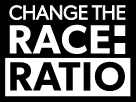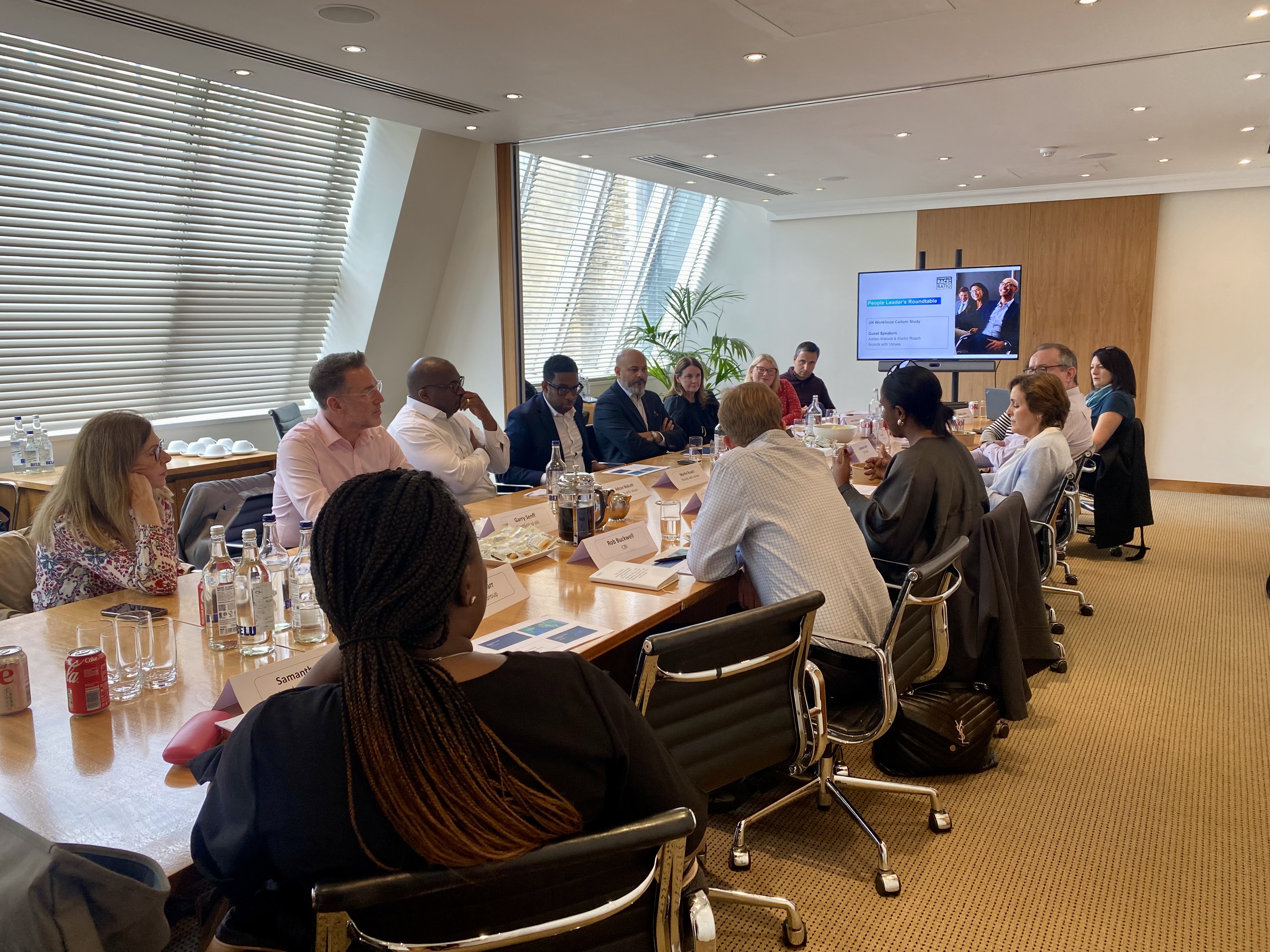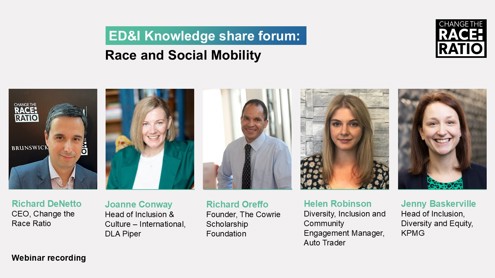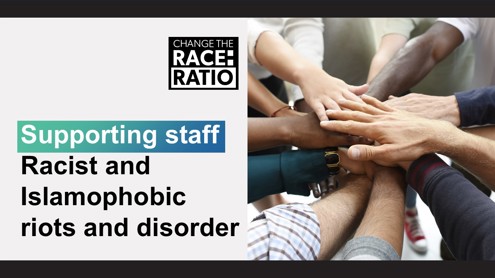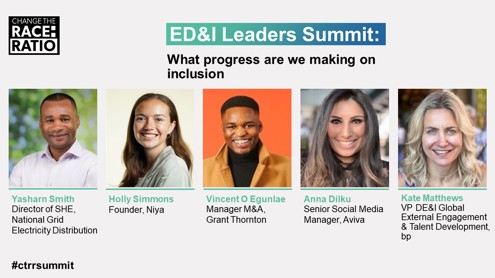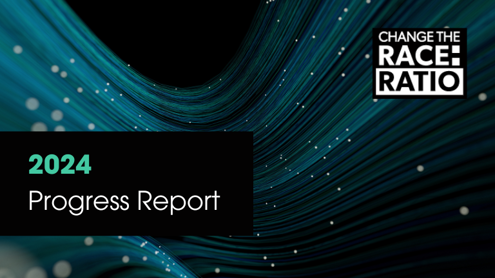What drives human behaviour in the workplace? It isn’t surprising that workplace culture (a shared pattern of beliefs, values and behaviours) has a huge impact on productivity. That is why more organisations are investing resources into finding out what motivates their employees and are taking action to create more inclusive cultures, impacting their ED&I goals and overall business strategy and performance.
Change the Race Ratio’s Vice Chair, Syreeta Brown, led the recent People Leader’s Forum with guest speakers, Martin Roach and Adrian St Clair Walcott from Brands with Values, sharing insights from their recent UK Work Culture and Productivity Study carried out with PwC, powered by their Culture Decoder tool, a first of its kind revolution to measure workplace culture. The decoder asks three questions collecting responses through word walls to gather the data, and was run across the UK, with 6390 individuals taking part across 30 industries.
The questions presented to employees were:
- What are your personal values?
- What values do you observe within the industry?
- What values would you like to observe within your industry and workplace?
The findings of the study showed the distance between employee’s personal values and the workplace values and measured the following metrics: Belonging, Creativity & Innovation, Cultural Health, Burnout and Psychological Safety, with results differing according to industry sector, company size, seniority level, gender, and age.
The study for example showed that ‘Belonging’ decreased with employee age, and that male employees and CEO’s felt the highest level of belonging. ‘Psychological Safety’ decreased with size of company, so looking at personal values is important for individuals to feel respected, valued, and empowered. You can view the full report here.
The different metrics of psychological safety, belonging and burnout are personal to everyone; what an individual may believe to be a strong metric for them may not be embedded into the company due to the industry the company operates in. As culture is intersectional it depends on the profession and the traits of that individual, whether that is entrepreneurial, liberal, innovative or collaborative etc.
During the session, some thought-provoking conversations were had about what works well when collating information around company culture, but also addressed challenges that may affect this.
It was found that the culture in the UK at times can display a degree of resistance or discomfort when engaging in conversations that require ‘healthy challenge’ such as calling out racism, sexism or sexual harassment in the workplace. Cultural traits in the UK such as conflict avoidance can show up in how managers lead teams and conduct mentoring and development conversations. Managers often cite feeling uncomfortable providing constructive feedback to colleagues from underrepresented backgrounds. Management needs to be equipped with training to have open conversations, provide constructive feedback and have a growth mindset to inclusion and inclusive language.
The state of the UK economy could be a contributing factor to employee trust levels and safety to disagree with the prevailing opinion; in order to fit in and not rock the boat due to job insecurity.
Value statements can be powerful, but they need to reflect the actual experience in the business. It’s important to have leadership buy in and values should be supported by the processes, policies and infrastructure across the organisation.
There are many steps you can take to create a more inclusive workplace culture; the options can be overwhelming and feel very daunting. Leading companies are being thoughtful and intentional on the actions they are taking, choosing to prioritise and solve for one or two key challenges. This approach allows businesses to direct resources effectively, take significant and meaningful action that aligns to business strategy, and measure and communicate the impact of the changes.
